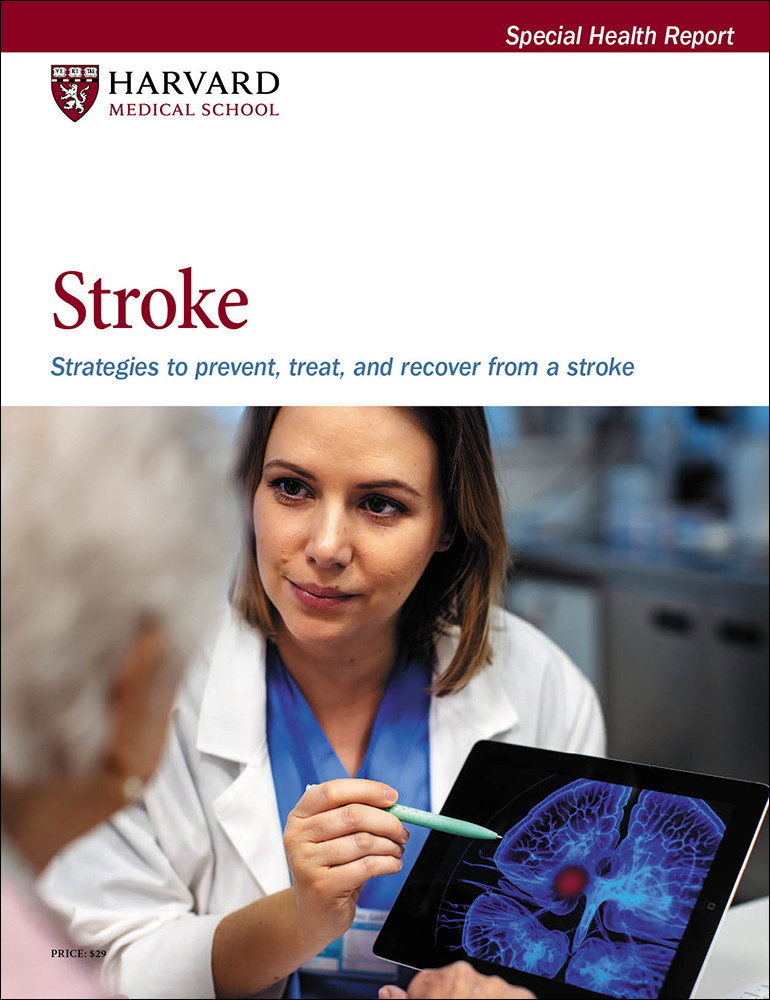Race, racism, and heart disease: Why awareness matters
Discrimination and its downstream effects may underlie the survival gaps in cardiovascular disease between racial groups. The aftermath affects everyone.
- Reviewed by Christopher P. Cannon, MD, Editor in Chief, Harvard Heart Letter; Editorial Advisory Board Member, Harvard Health Publishing

In the United States, Black adults are more than twice as likely to die of cardiovascular disease than white adults. Growing evidence points to structural racism as a "fundamental driver" of this stark disparity, according to a 2020 presidential advisory from the American Heart Association (AHA).
Structural racism refers to the systems in a society that create and maintain racial inequality. But the damaging health effects of the underlying problem — racial discrimination — have been studied for decades. More than 25 years ago, sociologist David R. Williams, professor of public health at the Harvard T.H. Chan School of Public Health, developed the Everyday Discrimination Scale. It's designed to quantify the hassles and indignities people experience in daily life and whether they feel this unfair treatment is due to their race, gender, age, or other characteristics. A recent update reviewed some of the cardiovascular effects related to race (see "Racial discrimination and heart health: The evidence").
"While there's a great deal of literature on the health effects of stress, the traditional measures have not always fully captured the stressful effects of discrimination, which can extend beyond daily indignities to also include a higher frequency of traumatic experiences, such as being unfairly stopped by police and exposure to gun violence," says Williams.
Racial discrimination and heart health: The evidenceCardiovascular disease and related health problems such as high blood pressure, diabetes, and obesity are often collectively referred to as cardiometabolic disease. Dozens of studies have explored how racial discrimination may worsen these common conditions. A review in the March 28, 2023, issue of the Journal of Racial and Ethnic Health Disparities synthesized the evidence to date. The review assessed 123 peer-reviewed studies done in the United States and published from 1996 to 2022. All the studies included people with cardiometabolic diseases who belonged to racial or ethnic minorities. Blacks were the most frequently studied racial group, accounting for 53% of participants across all the studies. The Everyday Discrimination Scale (see main story) was the most commonly used measure of discrimination. About three-quarters of the studies found that racial or ethnic discrimination was significantly associated with an increased risk of cardiometabolic disease. |
Downstream effects
Discrimination can also affect employment opportunities and advancement, which has downstream effects that contribute to health disparities, according to Dr. Michelle Albert, president of the AHA. "If you can't get a well-paying job or develop wealth, these circumstances limit where you can afford to live. That, in turn, affects your access to healthy foods, safe places to exercise, and good medical care," she says. In addition, discrimination has been linked to other factors that are hard on the heart, including social isolation, depression, and unhealthy coping skills such as smoking and alcohol use.
Like other stressful experiences, the experience of discrimination can activate the fight-or-flight response, triggering a release of hormones that raise blood pressure. Over time, blood pressure spikes can damage the blood vessels, kidneys, and heart, says Dr. Albert, director of the Center for the Study of Adversity and Cardiovascular Dis-ease at the University of California, San Francisco.
The price we pay
Given that cardiovascular disease is a leading cause of disability and death in this country, the financial impact of race-based health disparities is substantial, says Williams. The cost to society at large includes not just higher health care spending but also productivity losses related to job absenteeism and premature death. While Blacks make up about 14% of the population, nearly 40% of people currently living in the United States belong to a racial or ethnic minority. People in the other groups, which include Latinos, Asians, and Native Americans, also experience cardio-vascular disease disparities to varying degrees.
The AHA's Office of Health Equity sponsors community and workplace programs to address discrimination and other barriers to equitable health care. But on a personal level, everyone can benefit from becoming more aware of their implicit biases — the unconscious assumptions people have about groups of people that may underlie some discriminatory behaviors. Project Implicit (see health.harvard.edu/bias) includes online tests to explore implicit bias.
"The data on the health effects of discrimination are a call to each one of us to treat each person we encounter every day with the dignity and respect that they deserve as a human being," says Williams.
Image: © LifestyleVisuals/Getty Images
About the Author

Julie Corliss, Executive Editor, Harvard Heart Letter
About the Reviewer

Christopher P. Cannon, MD, Editor in Chief, Harvard Heart Letter; Editorial Advisory Board Member, Harvard Health Publishing
Disclaimer:
As a service to our readers, Harvard Health Publishing provides access to our library of archived content. Please note the date of last review or update on all articles.
No content on this site, regardless of date, should ever be used as a substitute for direct medical advice from your doctor or other qualified clinician.
















